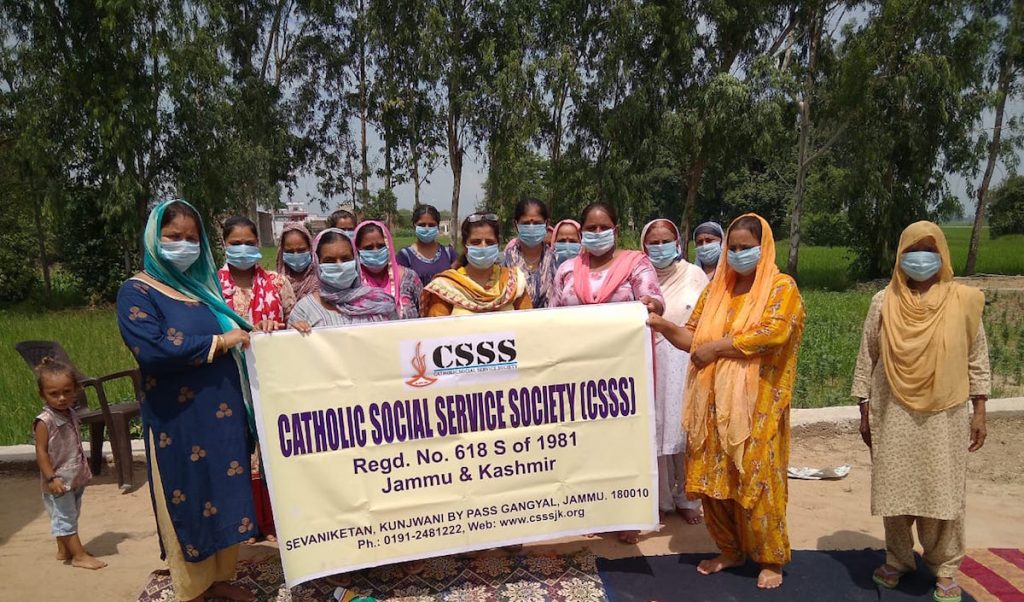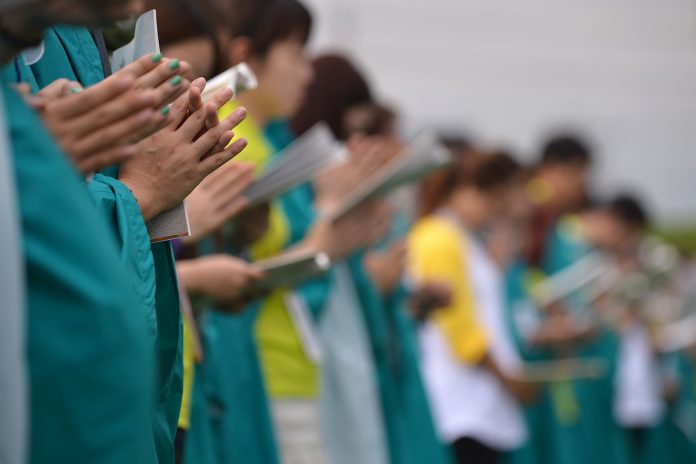Youth and women empowerment in the Catholic Church were among issues raised on Tuesday, October 18, at the ongoing general conference of Asian bishops in Thailand.
A press briefer released by the Federation of Asian Bishops’ Conferences (FABC) said the day’s discussions focused on the “concerns for, and role of, the youth in the Church” and “new pathways for the role of women for the Church in Asia.”
Earlier in the day, Father Akira Takayama, chaplain of the youth ministry in the Diocese of Takamatsu in Japan, spoke on the importance of listening to the youth for priests to be “re-evangelized.”
He discussed the “importance of cooperating with the youth” vis-a-vis the “position of the Church as different from home, work and school.”
The priest also expressed “hope that elders and Church leaders will provide spiritual guidance and be kind to the growth of the youth.”
Gregory Pravin, a pastoral worker from the Archdiocese of Kuala Lumpur, spoke about how the pandemic left people living in a digital, “individualistic world, self-sufficient, (and) without a hunger for the Lord.”
He said there is a need for a change in the Church’s narrative — from “the young people are absent” to “I am absent from the young people.”
Pravin urged bishops and priests “to be more than shepherds, to become seekers,” adding that “new structures” and “tools and methods” should be developed to “guide the youth back to the fullness of the Church experience.”
Women experts, meanwhile, addressed “issues Asian women face,” such as discrimination, misogyny, dual roles, disparity of income, and domestic violence in their presentation.

Stephanie Puen, a professor of Theology from the Ateneo de Manila University, introduced the concept of “caring justice,” highlighting how for many women “care was deeply undervalued.”
She said care should be the responsibility of all, “that it should be responsive and go along with solidarity, communication, trust and respect.”
Mary Yuen, also a professor of Theology at the Holy Spirit Seminary of Theology and Philosophy in Hong Kong, underlined the socio-economic problems faced by Asian women, especially during the pandemic.
She suggested “pastoral responses” that the Church can undertake, such as pastoral care, support centers, family crisis centers, and “assurances of rights and dignity.”
Human rights activist Sister Rasika Pieris of the Sisters of the Holy Family in Sri Lanka called for “alternative social structures that dispel with gender hierarchy, a theology that reflects the struggles of women and minorities, and a more inclusive image of God.”
She highlighted the need for women to be “full-fledged decision making citizens” in a “discipleship of equals in the Church.”
The FABC general conference, which opened on October 12 and runs until October 30, aims to “reaffirm, renew and revitalize” the Catholic Church in Asia under the theme: Journeying Together As Peoples of Asia, which is inspired by the scripture “then they went another way.”
With the usual reflections and group work for the bishops, special events have been planned, such as a “Talk Show with Asia” where believers from all over Asia participate in a videoconference.
The FABC is a voluntary association of episcopal conferences in Asia that was established with the approval of the Holy See. Its aim is to foster among its members solidarity and co-responsibility for the welfare of Church and society in Asia.
FABC members include Church leaders from Afghanistan, Bangladesh, Brunei, Cambodia, India, Indonesia, Japan, Kazakhstan, Korea, Kyrgyzstan, Laos, Malaysia, Mongolia, Myanmar, Nepal, Pakistan, Philippines, Taiwan, Singapore, Sri Lanka, Timor-Leste, Tajikistan, Turkmenistan, Uzbekistan, Vietnam, Thailand, China and its special administrative regions — Macao and Hong Kong.









